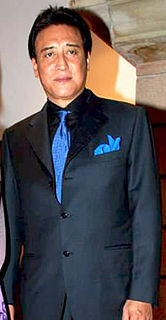A Quote by Henrik Fisker
I'm sure you're well aware of the car companies that went out of business in 2008. And you've had other brands that have seen difficulties here and there, even some of the most famous ones.
Related Quotes
When I was in N.W.A. and didn't get paid all the money I was owed, that's when the business side of showbiz hit me. I thought, "Half of this is workin'. I'm famous, but now I need to be famous with some money." That got my brain started at trying to figure out the business end. And once I figured out the business side, I next came to understand that success really comes down to the product, not to me, my personality, or what club I'm seen going into or coming out of. None of that matters.
In a startup car company, everything you do has to be done in a different way than a traditional car company. And the main reason is that all of these big car companies are operating like giant well-oiled machines - you could put a very seasoned executive in, and all he has to do is make sure the machine keeps running.
I see "demand creation" as a 20th-century construct that's bound up with advertising. It's an outmoded view of marketing that says, "First, we build a product or service, then we advertise it into people's lives." Embedded this view is the belief that companies control brands. This is a myth. My message all along has been that brands are actually created by customers, not companies. Companies only provide the raw materials - the products, messaging, behaviors - that people use these to create brands.
[Relationships] never seem to work out, I mean it gets to the point where I have to be extremely cautious. You have to understand, this stardom thing is still new to me, I don't even consider myself "famous". It's 2008: if you have a blog, a mixtape and two pairs of skinny jeans you, too, can be 'famous'.
"Don't worry too much about how spiritually poor you are_God sees that,but for you it is expected to trust in God and pray to Him as best you can,never to fall into despair and to struggle according to your strength.If you ever begin to think you are spiritually_"well off"_then you can know for sure that you aren't!True spiritual life,even on the most elementary level,is always accompanied by suffering and difficulties.Therefore you should rejoice in all your difficulties and sorrows."
Virgin, is how good you are with people. If you're - if you're good with people and you've got - you know, and you really care, genuinely care about people then I'm sure we could find a job for you at Virgin. I think, you know, that, you know, that the companies that look after their people are the companies that do really well. I'm sure we'd like a few other attributes, but that would be the most important one.
We have two distinct types of political organization to take into account; and clearly, too, when their origins are considered, it is impossible to make out that the one is a mere perversion of the other. Therefore when we include both types under a general term like government, we get into logical difficulties; difficulties of which most writers on the subject have been more or less vaguely aware, but which, until within the last half-century, none of them has tried to resolve.





































